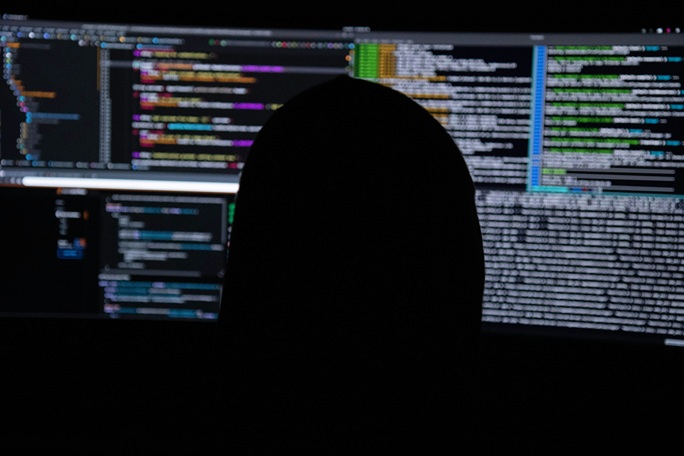🐧 The Secret Life of Linux: How It Runs the Internet, AI, and Your Phone
When you open your favorite app, stream a movie, or even send a message — there’s an invisible force making it all possible. It’s not Windows. It’s not macOS. It’s Linux — the quiet, open-source superhero that powers most of our modern world.
From Google to Amazon, from your Android phone to Tesla’s self-driving car, Linux works tirelessly behind the scenes. It doesn’t scream for attention — it simply runs the planet.
So, what exactly is Linux, and why does almost every powerful system depend on it? Let’s uncover the secret life of the world’s most important operating system.

🧩 What Exactly Is Linux?
At its core, Linux is an open-source operating system first created by Linus Torvalds in 1991. Unlike proprietary systems such as Windows or macOS, Linux’s source code is freely available for anyone to use, modify, and distribute.
This single decision — to make Linux free and open — changed technology forever. It allowed millions of developers around the world to contribute, refine, and adapt Linux into countless forms. Today, there isn’t just one Linux — there are hundreds of “distributions” (or distros) like Ubuntu, Fedora, Debian, and Red Hat — each serving different needs.
But what makes Linux so special that it’s trusted by the giants of technology?
⚙️ Linux: The Backbone of the Internet
When you browse the web, there’s a 95% chance the server you’re connecting to is running Linux. Major tech companies — including Google, Amazon, Facebook, and Netflix — rely on Linux to keep their servers stable, fast, and secure.
Why?
Because Linux is:
✅ Stable and Reliable: It can run for years without crashing. Some Linux servers have uptimes of over a decade.
✅ Efficient: It uses fewer resources, which means companies save millions in hardware and energy.
✅ Secure: Its open-source nature means vulnerabilities are found and fixed faster than in closed systems.
The world’s largest web hosting companies and data centers — including AWS and Google Cloud — are built on top of Linux. In other words, without Linux, the internet as we know it would collapse.
🤖 Linux in Artificial Intelligence (AI) and Machine Learning
If the internet is the brain of the modern world, then AI is its rising consciousness — and Linux is what keeps it alive.
Nearly every AI and machine learning framework (like TensorFlow, PyTorch, or OpenCV) runs best on Linux. Why? Because Linux gives developers complete control, supports powerful hardware drivers, and integrates perfectly with tools like Docker, Kubernetes, and CUDA.
Big AI research labs — including OpenAI, DeepMind, and Meta AI — all rely on Linux-based systems for deep learning and data training.
Linux’s flexibility allows data scientists to customize environments, scale experiments, and deploy models faster than any other OS. Simply put: if AI is the future, Linux is the foundation it stands on.
📱 The Linux You Carry in Your Pocket
Here’s a surprise — if you’re reading this on a smartphone, you’re probably using Linux right now.
Android, the world’s most popular mobile OS, is built on top of the Linux kernel. Every call you make, every app you open, every photo you take — all powered by Linux.
That’s over 3 billion active devices running Linux every single day.
Beyond phones, Linux powers smart TVs, routers, drones, smartwatches, and even refrigerators. It’s the quiet operating system inside the Internet of Things (IoT), connecting billions of devices into one global network.
🚗 Linux on the Road — and Beyond
Linux isn’t just inside your home — it’s on the move.
- Tesla cars run Linux for their infotainment and autopilot systems.
- SpaceX rockets rely on Linux for mission control and flight systems.
- Even NASA’s Mars Rover “Perseverance” uses a form of Linux to explore another planet.
That’s right — Linux isn’t just running the world; it’s running the universe.
💡 Why Linux Wins Where Others Fail
The reason Linux dominates isn’t just because it’s free. It’s because it represents freedom itself.
- Freedom to modify: You can tweak every part of it to suit your needs.
- Freedom to share: Anyone can contribute, fix bugs, or create something new.
- Freedom from control: No company owns it — the community does.
That’s why developers, ethical hackers, scientists, and even governments trust Linux. It’s transparent, community-driven, and built for innovation — not profit.
🔐 The Security Secret: Why Hackers Prefer Linux
You’ve probably heard that “hackers love Linux” — and it’s true. But not for the reasons you think.
Linux gives users total system control. Ethical hackers and cybersecurity experts use it because it allows deep system visibility, strong encryption, and powerful networking tools like Nmap, Wireshark, and Metasploit.
It’s also far less vulnerable to malware — not because it’s invincible, but because its architecture and permission model make attacks much harder to execute.
So yes, hackers use Linux — but so do the people protecting you from them.
🚀 The Future Is Open
The world is shifting rapidly toward open-source everything — and Linux is leading the charge.
From AI servers to quantum computing and autonomous systems, Linux provides the flexibility and performance needed for cutting-edge innovation.
Even Microsoft, once a fierce rival, now embraces Linux — offering it in Azure, and even integrating it into Windows itself through WSL (Windows Subsystem for Linux).
In short, Linux has won.
🧠 Final Thoughts
Linux started as a college project. Today, it’s the heartbeat of the digital world — powering the internet, artificial intelligence, smartphones, and even space exploration.
It’s not loud, flashy, or corporate — it’s free, powerful, and unstoppable.
So, the next time you send a message, stream a movie, or check your phone — take a second to thank Linux, the invisible hero keeping our connected world alive.
Written by Chandana Nawarathna
📅 Published on October 24, 2025
🔗 Tags: linux, open source, AI, internet, android, operating system, tech